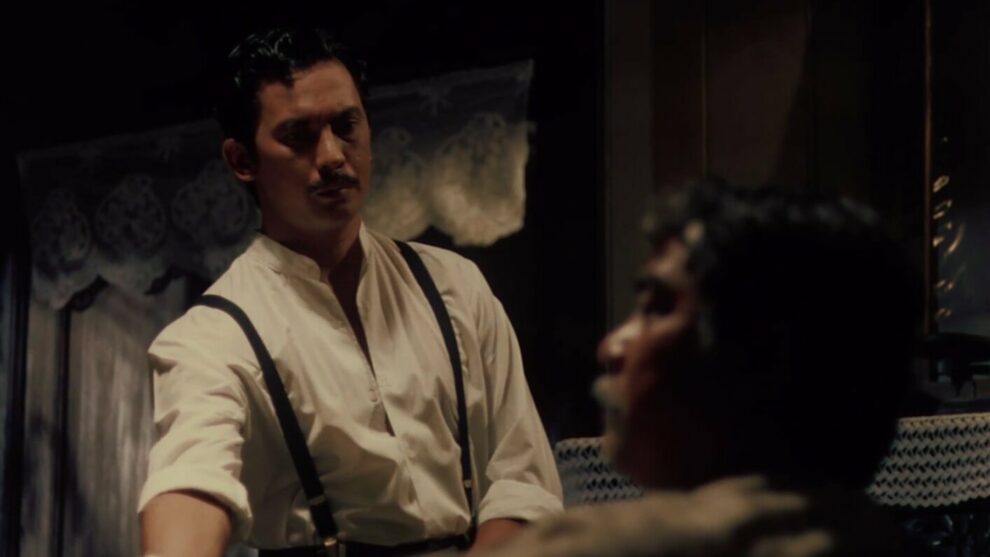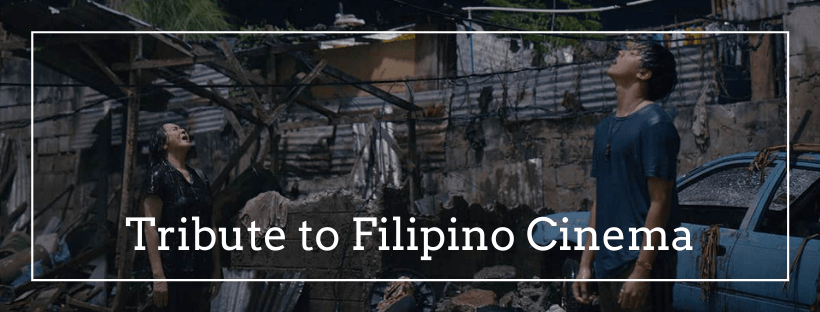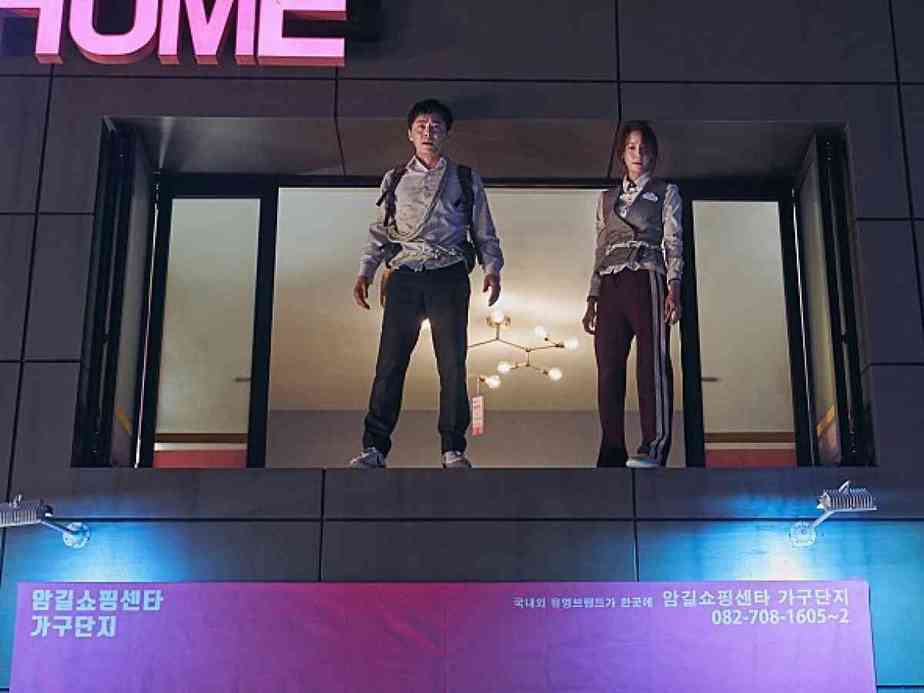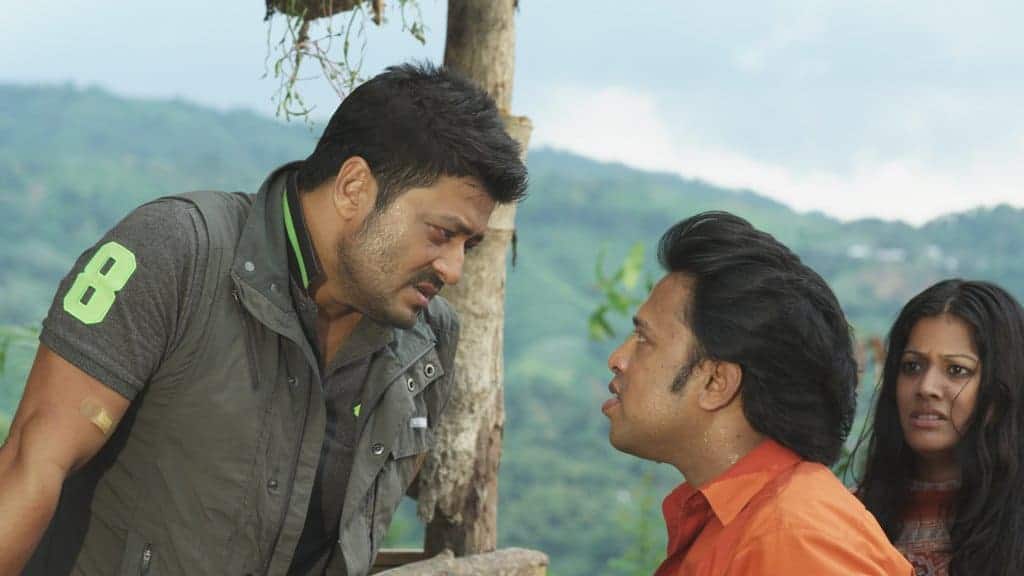Adapted and written by Ricky Lee from the legal story “To Take a Life” by Teresa Añover Rodriguez, “Karnal” concludes the feminist trilogy by Marilou Diaz-Abaya (“Brutal” and “Moral” are the other two entries), while it screened at the Metro Manila Film Festival winning awards for Best Film, Sound Engineering, Cinematography, and Art Direction, among a number of other awards from local festivals. In 2015, the film was digitally restored and remastered in high-definition by the ABS-CBN Film Restoration under the leadership of Leonardo P. Katigbak and Central Digital Lab under Rick Hawthorne and Manet Dayrit. The restored version of “Karnal” was premiered on August 13, 2015, as one of the special features for the 11th Cinemalaya Independent Film Festival.
The film begins with a middle-aged woman functioning as a narrator, and telling a story that took place in the 1930s, during the American colonial era. Newly-wed couple Narcing and Puring arrive at the former's birthplace, Mulawin, from Manila, after stumbling on a number of financial difficulties. Their visit is supposedly temporary, but soon it is revealed that that is not going to be the case, as a number of revelations come to the fore and Narcing's father, Gusting, is not proven exactly a generous host. The tension mounts from the beginning, with Narcing proving his strictness towards his wife from the get go, while the fact that Puring looks very much like his deceased mother, creates another set of problems for everyone involved. Parricide, infidelity, betrayal, guilt and redemption all become parts of a story that is quite dramatic. Goryo, a local deaf-mute man, eventually plays a crucial role in all the proceedings and Doray, Narcing's sister, becomes the person who reveals the back story to both Puring and the viewers of the movie.
Marilou Diaz-Abaya always knew how to create an atmosphere from the introductory scenes in her movies, and “Karnal” is no exception. As soon as the couple arrive at Mulawin, Narcing's discomfort becomes evident, firstly upon their meeting with their neighbors, and even more so, when they meet his father, whose cruelty and coldness regarding both sets the tone for the whole film. Some romantic elements offer a brief relief, but soon violence, almost always directed to Puring, from Narcing initially, and later on, from Gusting, take over, with every effort of the girl to do something different than what the patriarchy directs, ending up with her scarred both physically and psychologically. That the women of the story have no control over their fate becomes apparent throughout the movie, through both Puring and Doray, with the two of them being “slaves” to the whims of the men that surround them. That the only solace the former finds is from Goryo, one who, under the patriarchy rules, can barely be described as man, as he has no money, no land, no family and no power, adds even more to this comment, with the deafmute also being one of the main sources of melodrama here.
Even more interesting are two comments that derive from the aforementioned and also the whole concept of family. For Abaya, filial loyalty is a burden that supports patriarchy and the subjugation of women, but is also a problem for the men themselves, whose constant need to compete with each other, even in the case of father and sons, ends up being their demise in this case. Furthermore, the fact that Puring looks like Narcing's mother and Gusting's wife, adds a psychosexual aspect to the aforementioned competition, particularly after the latter's actions towards his son's wife. At the same time, it turns Puring into a femme fatale, even if that happens unwillingly for her, in a rather extreme revenge aspect that adds even more to the already rich context here.
Also of note is that, although the basis of the movie is that of the family (melo)drama, with the melo aspect actually taking completely over as the story nears its ending, there are a number of rather brutal scenes that move into the territory of exploitation, in another trademarks of Abaya's direction. The gore involved, as much as their sudden appearance add a shocking element here that definitely adds to the entertainment the movie offers while giving a relief from all the drama. The fight scenes on the other hand, could have been better choreographed, since they seem amateurish in their implementation, in an element that seemed to have tormented the local cinema of the era overall.
DP Manolo Abaya (Abaya's husband) captures the rural locations in a way that creates a truly hellish environment, with the few moments of idyllic beauty buried under the cruelty and the violence that dominate the narrative. The quality of the visuals, however, particularly after the restoration, is quite evident throughout, with the pastel colors dominating fittingly and the night scenes being impressive. Although the pacing is a bit confusing on occasion, with the difference in time actually being signified by Puring's change of hair style, Marc Tarnate's editing is well done, as it it imbues the movie with a very fitting fast pace, that also suits the episodic style of the narrative.
The acting is also on a very high level. Charito Solis is an endearing narrator, with the mystery surrounding her identity adding another level of entertainment in the movie. Philip Salvador as Narcing presents a man that is struggling between love and filial piety, between his feelings and his duty, in a clash that eventually destroys him, in a rather endearing performance. The same applies to Cecille Castillo as Puring, whose will for individuality is soon clashed under the violent power of the men around her, in a very difficult role that frequently has her as the recipient of intense violence. Her interactions with Joel Torre's Goryo highlight the chemistry of the two, with the latter portraying the kind deaf-mute quite convincingly. Lastly, Vic Silayan portrays a captivating villain, particularly in the moments he emits danger from every mannerism.
“Karnal” may be a bit overdramatic on occasion but both the comments and the rather intriguing story are exquisite in their conception and implementation, in another great work by the late Abaya.

















This remains my favorite Marilou Diaz-Abaya film
I really enjoyed it also